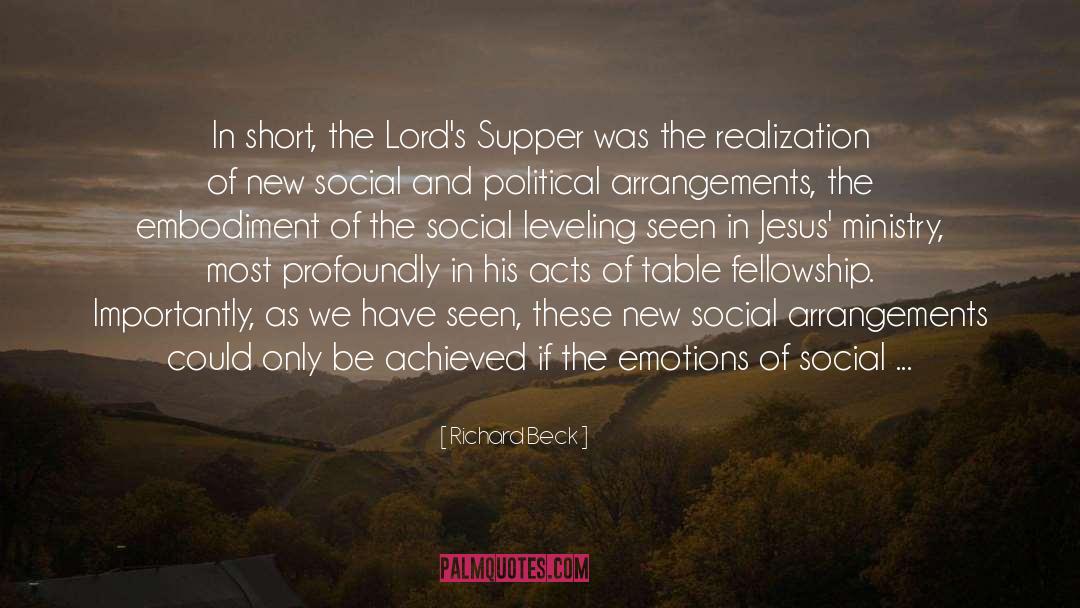Richard Beck Famous Quotes
Reading Richard Beck quotes, download and share images of famous quotes by Richard Beck. Righ click to see or save pictures of Richard Beck quotes that you can use as your wallpaper for free.
Satan might not be a personalized agent, but I do believe there are moral forces that transcend individuals, forces that have a real causal effect on moral decision-making.
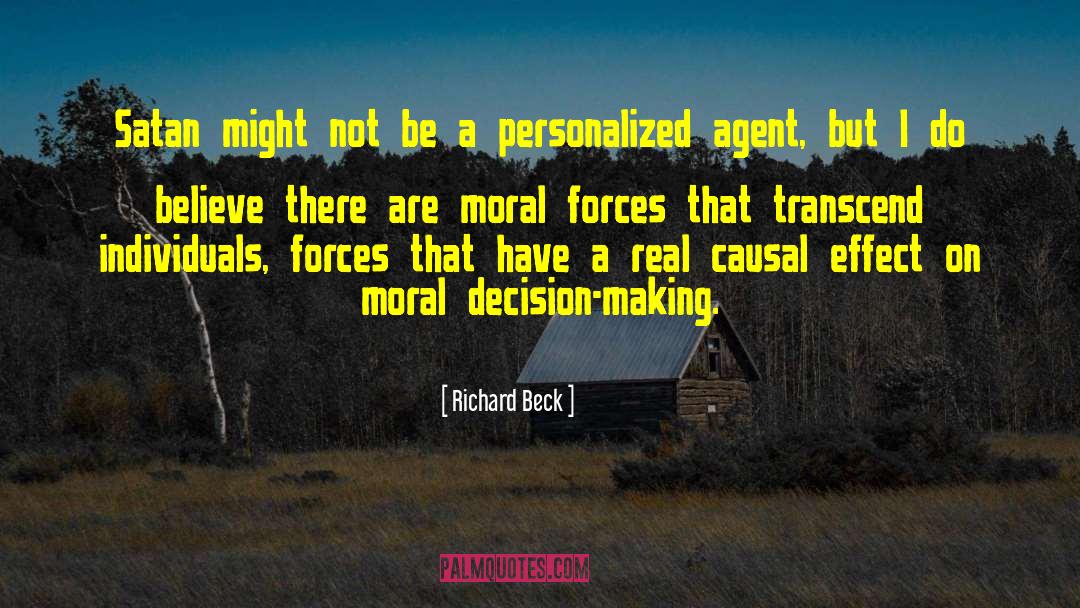
[B]eyond hiding our need and neurotically pursuing self-esteem, there is a third way our neurotic anxiety about death interferes with love. And this is the darkest manifestation of all, as it makes us violent.
Because our worldview is the source of our significance and self-esteem, we want to defend it from the criticisms of out-group members. Those who are different from us implicitly or explicitly call into question the things we hold most dear, the cultural values that ground and shape the contours of our identity and self-esteem in the face of death. In this, out-group members become a source of anxiety, an existential threat. To cope with the anxiety, we rush to defend our worldview and become dogmatic, fundamentalist, and ideological in regard to our values, culture, and way of life. We embrace our worldview as unique and exceptional, as superior to other worldviews, which we deem inferior, mistaken, and even dangerous. This mindset begins the process in which out-group members are denigrated and eventually demonized, sowing the seeds of violence. The point to note here is how this violence is fueled by an underlying neurotic fear that the cultural projects that we've invested in and sacrificed for are not actually immortal, eternal, timeless, or immune to death.
![Richard Beck Quotes: [B]eyond hiding our need and Richard Beck Quotes: [B]eyond hiding our need and](https://palmquotes.com/author/richard-beck-quotes-611733.jpg)
I use the following scenario in my classes to illustrate the nature of the moral circle. Imagine, I ask my students, that your best friend just got a job waiting tables at a restaurant. To celebrate with her you arrange with friends to go to the restaurant to eat dinner on her first night. You ask to be seated in her section and look forward to surprising her and, later, leaving her a big tip. Soon your friend arrives at your table, sweating and stressed out. She is having a terrible night. Things are going badly and she is behind getting food and drinks out. So, I ask my students, what do you do? Easily and naturally the students respond, "We'd say, 'Don't worry about us. Take care of everyone else first.'" I point out to the students that this response is no great moral struggle. It's a simple and easy response. Like breathing. It is just natural to extend grace to a suffering friend. Why? Because she is inside our moral circle.
But imagine, I continue with the students, that you go out to eat tonight with some friends. And your server, whom you vaguely notice seems stressed out, performs poorly. You don't get good service. What do you do in that situation? Well, since this stranger is not a part of our moral circle, we get frustrated and angry. The server is a tool and she is not performing properly. She is inconveniencing us. So, we complain to the manager and refuse to tip. In the end, we fail to treat another human being with mercy and dignity. Why? Because i

Being a parent is joyful, but it's also haunted by the specter of loss.
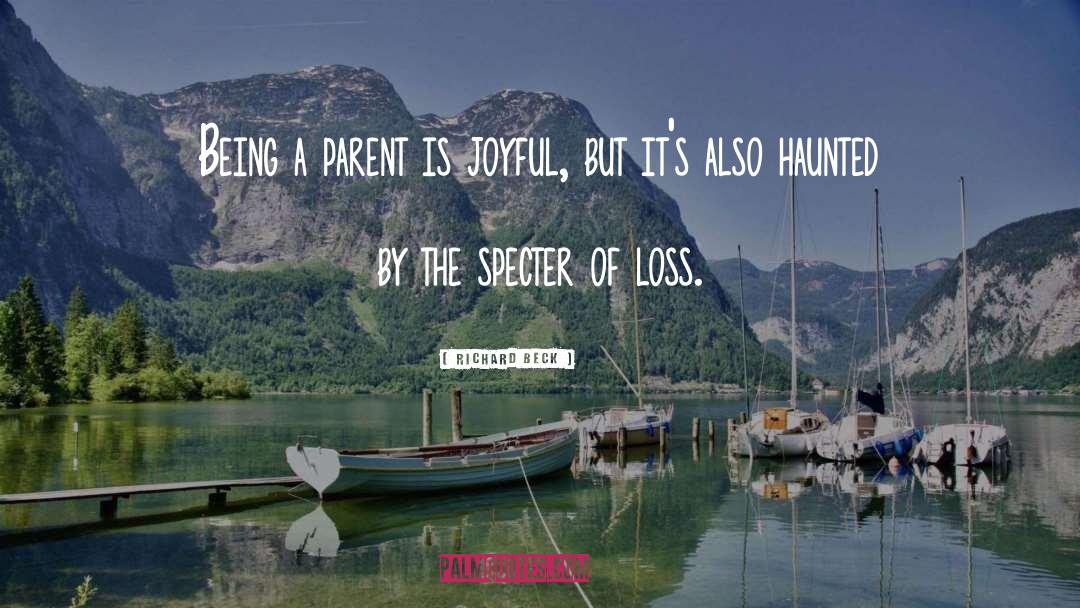
Whenever you hear someone say that they love God more than human beings watch out, because that person is about to hurt somebody.

Fearing death - neurotically manifested as a fear of "failure" or being needy in American culture - we slavishly pursue "success" as it is defined by the surrounding culture. Even more troubling, we become hostile toward out-group members who call our hero system into question.
The great problem in all this - a problem we need to face before concluding - is how God and religion undergird and support the cultural hero system. Cultural hero systems and religion are deeply interconnected - in fact, they are generally synonymous - with our "God" or "gods" providing the warrant for our way of life. Recall that in order for hero systems to confer immunity in the face of death, they must be experienced as immortal and eternal. And there is no better way to create that sense of immortality than to baptize and sacralize the hero system, to fuse our way of life with the way of God.
What this means is that "God" and religious institutions can become as enslaved to the fear of death as everything else in the culture. The church can become as much a principality and power as any other cultural institution. And if this is so, service to "God" and "the church" can produce satanic outcomes as much as, if not more so, any other form of service to the power of death in our world.
In biblical terms, this is idolatry - when "God" and religion become another form of our slavery to the fear of death, another fallen principality and power demanding slavish service a
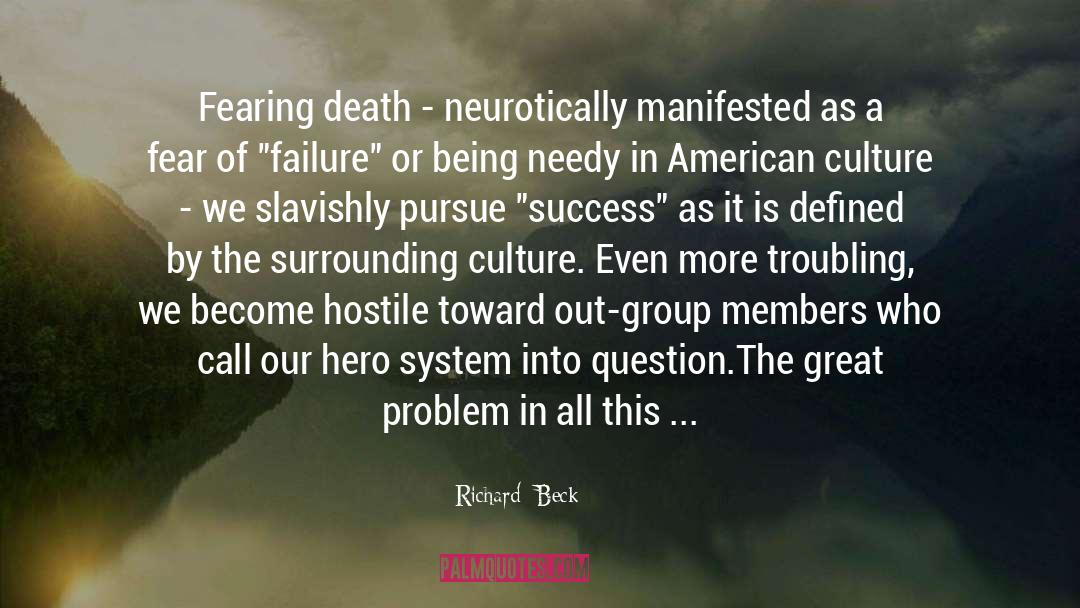
Over the course of the 1970s conservatives made the endangered child into a kind of political and rhetorical abstraction, a way of thinking about the country and its citizens that could help advance a wide range of policy initiatives. They opposed the counterculture on the grounds that rock and roll caused adolescents to lose respect for family life. They promoted the War on Drugs with racially tinged morality tales about addicted inner-city mothers and, crucially, the "superpredator" "crack babies" to whom those mothers supposedly gave birth. (That particular epidemic was later shown to be a myth.)40 And when Anita Bryant led a campaign to allow Dade County to discriminate against homosexuals in hiring teachers for public schools, she named the effort "Save Our Children." The fear that tied all of these campaigns together was of the ease with which children could be victimized or else corrupted and turned against the society that was supposed to nurture them.
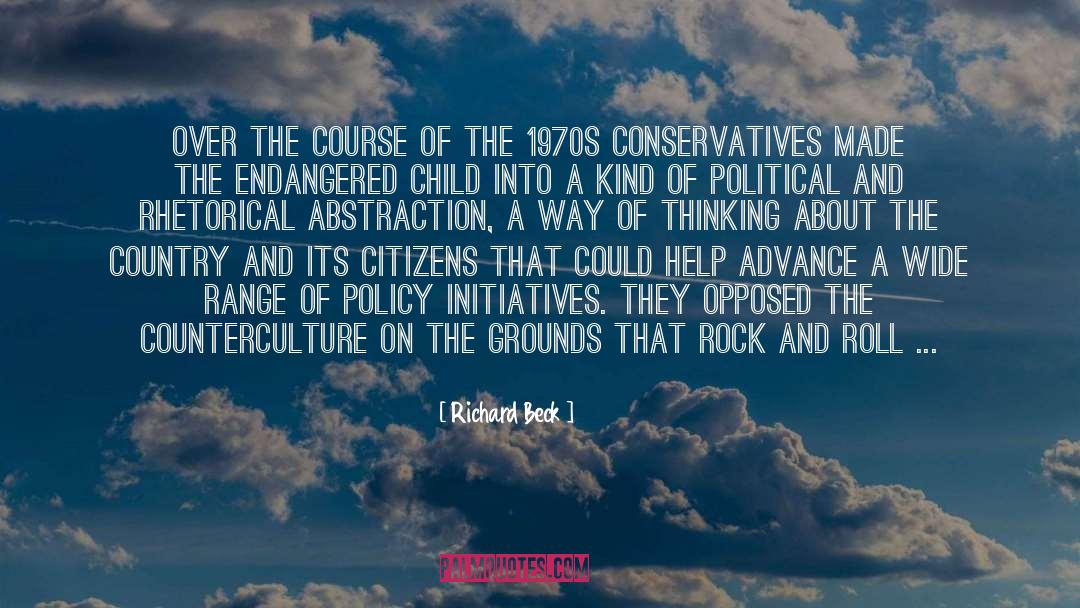
The prophet proclaims that God cannot be identified with the status quo - however shiny, powerful, immortal, or divine that status quo may appear. The principalities and powers will always seek to capture and enslave God in an attempt to use the name of God to underwrite current power arrangements. To go against the status quo, declare the powers, is to go against God. Religion in this instance becomes another fear-based cudgel, wielded to protect the interests of the principalities and powers and those who currently benefit from business as usual, thus aiding in their success and survival. Consequently, before proclamation to human captives can be made - freedom to those being oppressed by current power arrangements - the prophet must dare to proclaim that God is not the spokesperson for the status quo, but rather stands outside the system - free - to speak a word of judgment. When the freedom of God is proclaimed, when God is outside the system and free to bring a word of indictment against us, the capacity is created to speak on behalf of the marginalized and the disfranchised in the name of God. Being free, God can now be for the weak and the least of these over against those at the top of current power arrangements. This was the real shock at the heart of Moses's prophetic utterance to Pharaoh - that God was on the side of the slaves and stood with them over against the divinely ordained power and authority of Egypt.
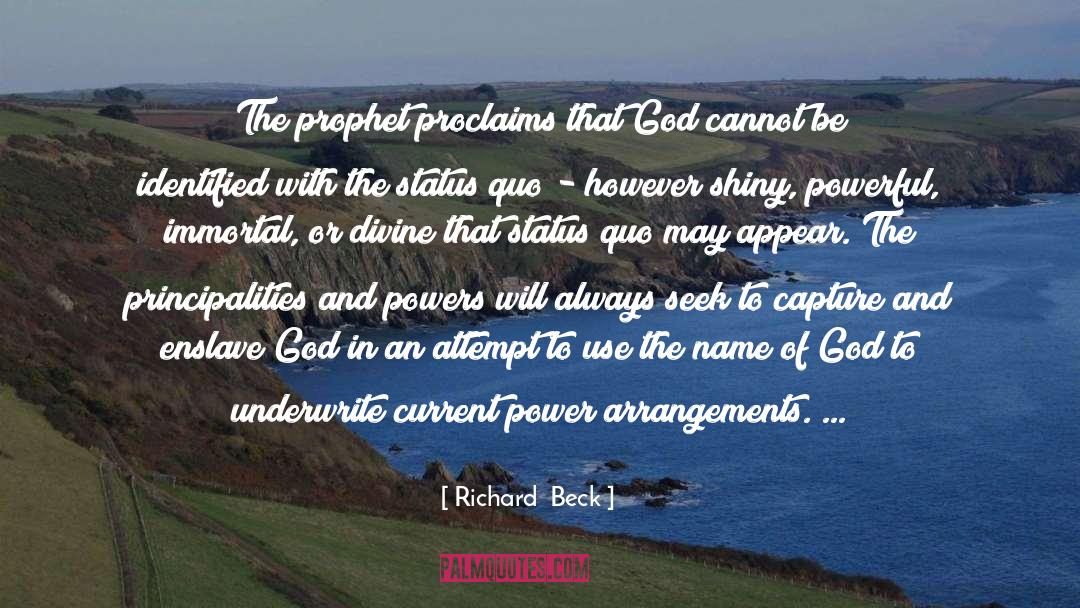
Notice in Acts 4 that there were "no needy persons among them." Why? Because they shared with "anyone one who had need." The expression of neediness in the community allowed the economy of love to flow. But in churches in America and other places where affluence poses special problems, the situation is very different. These cultures are enslaved to the fear of death and death avoidance holds serious sway. In these cultures the expression of need is taboo and pornographic. What results is neurotic image-management, the pressure to be "fine." The perversity here is that on the surface American churches do look like the church in Acts 4 - there are "no needy persons" among us. We all appear to be doing just fine, thank you very much.
But we know this to be a sham, a collective delusion driven by the fear of death. I'm really not fine and neither are you. But you are afraid of me and I'm afraid of you. We are neurotic about being vulnerable with each other. We fear exposing our need and failure to each other. And because of this fear - the fear of being needy within a community of neediness - the witness of the church is compromised. A collection of self-sustaining and self-reliant people - people who are all pretending to be fine - is not the Kingdom of God. It's a church built upon the delusional anthropology we described earlier. Specifically, a church where everyone is "fine" is a group of humans refusing to be human beings and pretending to be gods. Such a "church
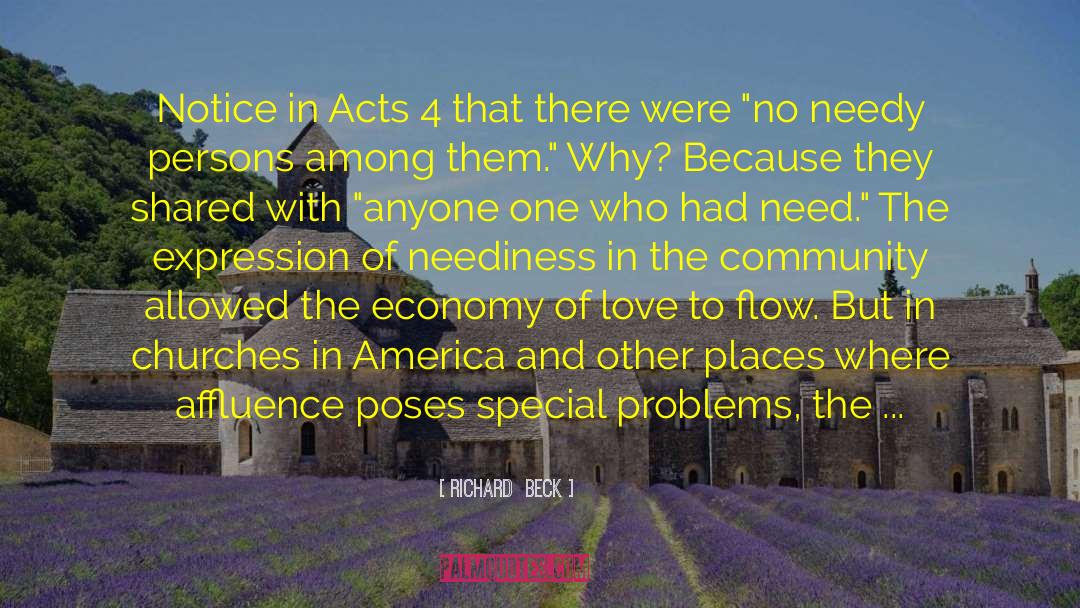
These two experiences of scarcity - not having enough and not being enough - affect our ability to love each other, fully, joyfully, and sacrificially.
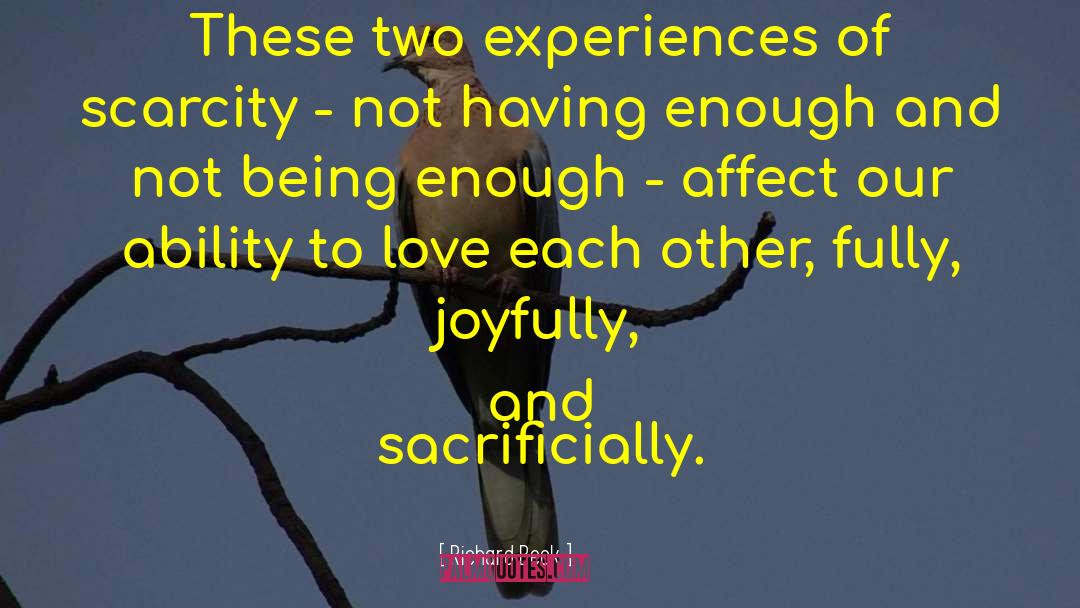
The idea here is that we are less wicked than we are weak. As sarx - as mortal animals - we are playthings of the devil, who uses the fear of death to push and pull our survival instincts (our fleshly, sarx-driven passions) to keep us as "slaves to sin.
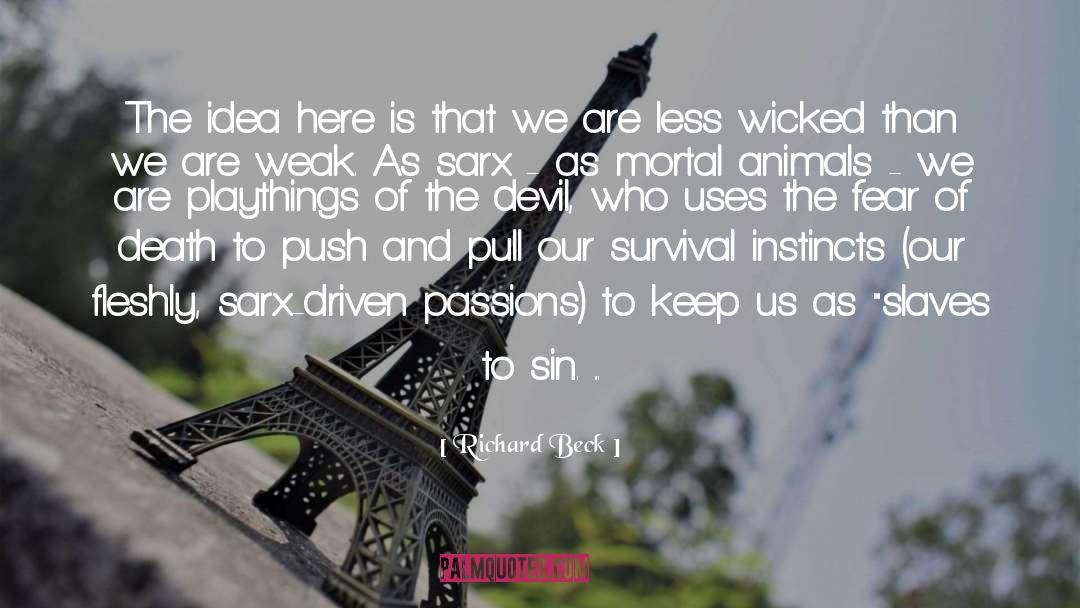
The danger of refusing to reflect upon the psychological dynamics of faith and belief is that what we feel to be self evidently true, for psychological reasons, might be, upon inspection, highly questionable, intellectually or morally. Too often, as we all know, the 'feeling of rightness' trumps sober reflection and moral discernment. Further, we are often unwilling to listen to others until we are, to some degree, psychologically open to persuasion. The Parable of the Sower comes to mind.

On the playground, "cooties" seems harmless and innocuous (unless you've been on the other end of that game). But sociomoral disgust can quickly scale up in intensity and become the engine behind the very worst of human atrocities. During times of social stress or chaos, those persons or populations already associated with disgust properties will provide the community a location of blame, fear, and paranoia. In short, sociomoral disgust is implicated in the creation of monsters and scapegoats, where outgroup members are demonized and selected for exclusion or elimination. As David Gilmore writes in his book Monsters, a monster is "the demonization of the 'Other' in the image of the monster as a political device for scapegoating those whom the rules of society deem impure or unworthy - the transgressors and deviants." These deviants are considered to be "deformed, amoral, [and] unsocialized to the point of inhumanness." Take, for an example, the Nazi propaganda film The Eternal Jew, where an early shot in the film showed rats emerging from a sewer juxtaposed with a crowd of Jewish persons in a Polish city. In America, as another example, proponents of anti-gay legislation have circulated pamphlets claiming that gay men eat human feces and drink human blood. In each of these instances, sociomoral disgust is used to demonize and scapegoat populations, creating "monsters" who are threatening to society.
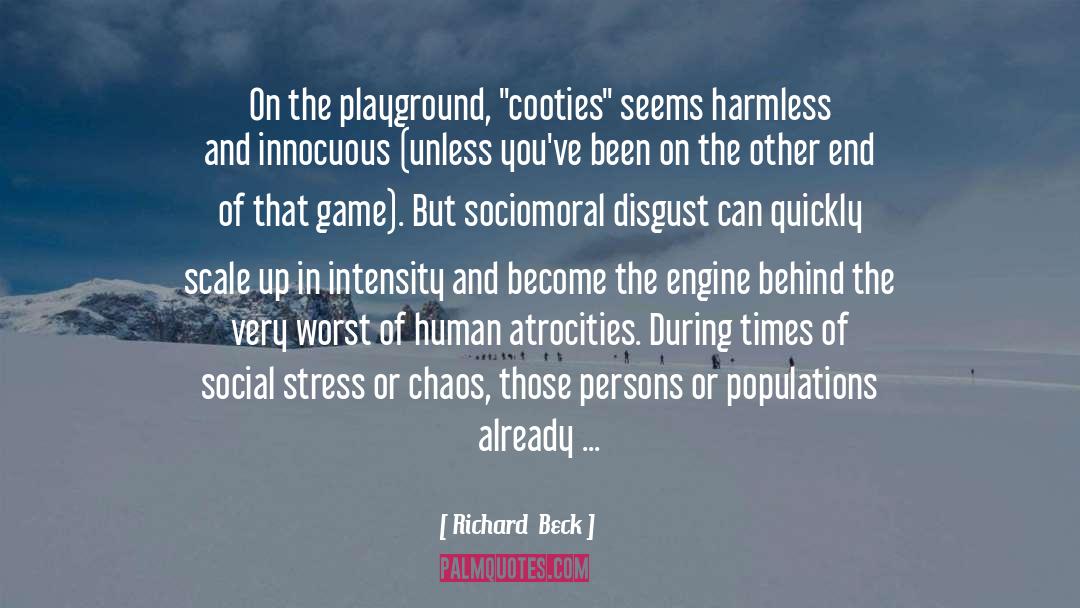
In short, the Lord's Supper was the realization of new social and political arrangements, the embodiment of the social leveling seen in Jesus' ministry, most profoundly in his acts of table fellowship. Importantly, as we have seen, these new social arrangements could only be achieved if the emotions of social stratification were confronted, eliminated, or reinterpreted. In his body metaphor, Paul dramatically reframes these heretical emotions, the emotions of contempt, disgust, honor, and social presentability. Rather, than signaling exclusion and division - the natural expulsive impulse inherent in these emotions - Paul suggests that these emotions should signal just the opposite in the Kingdom of God: honor, care, and embrace.
